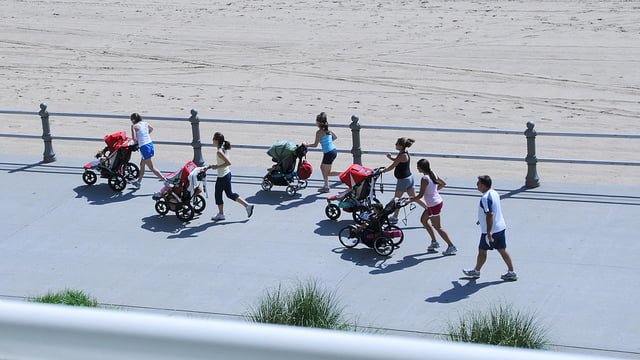
What are some of the benefits of exercise during pregnancy?
Becoming active and exercising at least 30 minutes on most, if not all, days of the week can benefit your health during pregnancy. Regular activity also helps keep you fit during pregnancy and may improve your ability to cope with labor. This can also make it easier for you to get back in shape after the baby is born.
What changes occur in the body during pregnancy that can affect my exercise routine?
The hormones produced during pregnancy cause the ligaments that support your joints to become relaxed. This makes the joints more mobile and more at risk of injury. The extra weight in the front of your body during pregnancy shifts your center of gravity and places stress on joints and muscles, especially those in the pelvis and lower back. This can make you less stable, cause back pain, and make you more likely to lose your balance and fall, especially in later pregnancy. The extra weight you are carrying will make your body work harder than before you were pregnant.
What forms of exercise are safe during pregnancy?
Certain sports are safe during pregnancy, even for beginners:
- Walking is a good exercise for anyone.
- Swimming is great for your body because it works so many muscles.
- Cycling provides a good aerobic workout.
- Aerobics is a good way to keep your heart and lungs strong.
- If you were a runner before you became pregnant,you often can keep running during pregnancy,although you may have to modify your routine.
What forms of exercise should be avoided?
In general, activities in which there is a high risk of falling, such as gymnastics, water skiing, and horseback riding, should be avoided. Some racquet sports also increase the risk of falling because of your changing balance. Other sports to avoid include the following:
- Downhill snow skiing—Your change in balance may put you at greater risk of injuries and falls. Also, you may be at risk of altitude sickness, an illness caused by breathing air that contains less oxygen.
- Contact sports, such as hockey, basketball, and soccer—These sports can result in harm to you and your baby.
Scuba diving —Scuba diving can put your baby at risk of decompression sickness, a serious illness that results from changes in the pressure surrounding the body.
What should I be aware of when exercising during pregnancy?
The changes in your body can make certain positions and activities risky for you and your baby. While exercising, try to avoid activities that call for jumping, jarring motions, or quick changes in direction that may strain your joints and cause injury.
There are some risks from becoming overheated during pregnancy. This may cause loss of fluids and lead to dehydration and problems during pregnancy.
When you exercise, follow these general guidelines for a safe and healthy exercise program:
- After the first trimester of pregnancy, avoid doing any exercises on your back.
- If it has been some time since you have exercised, start slowly. Begin with as little as 5 minutes of exercise a day and add 5 minutes each week until you can stay active for 30 minutes a day.
- Avoid brisk exercise in hot, humid weather or when you have a fever.
- Wear comfortable clothing that will help you to remain cool.
- Wear a bra that fits well and gives lots of support to help protect your breasts.
- Drink plenty of water to help keep you from overheating and dehydrating.
- Make sure you consume the daily extra calories you need during pregnancy.
ALSO READ: Breastfeeding when you are back at work…
For more information on exercise and pregnancy visit the American Congress of Obstetricians and Gynecologists.
